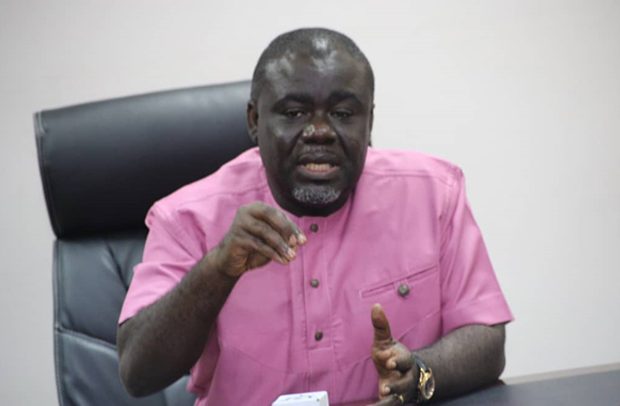Mr Kwaku Ofori-Asiamah
MINISTER FOR Transport, Kwaku Ofori Asiamah, has called for stronger collaborative efforts to deal with the high emerging risks associated with the maritime industry as a result of the rising profitability in the Gulf of Guinea.
According to him, piracy, illegal bunkering, IUU fishing and other illicit activities have been on the rise in the Gulf of Guinea within the last decade.
For instance, he said, available records by the International Maritime Bureau (IMB) indicate that in the first quarter of 2021, the Gulf of Guinea recorded 38 reported incidents of piracy activities.
The first quarter 2021 IMB Piracy Report also revealed that the Gulf of Guinea accounted for 43% of all reported incidents, including both fired upon incidents as well as the hijacking.
The region also accounted for all 40 crew kidnapped and crew fatality, he added.
These, he noted, have resulted in insurance companies charging higher insurance premiums, making cost of maritime operations very expensive within the region.
“We have to work and plan together because now our maritime domain is becoming more profitable. Once your maritime domain is becoming more viable, it means the risk is also high. So, we need to work together and see how best we can minimize this risk to our advantage. Insurance Premium in our maritime domain is one of the highest in the world simply because of this risk associated with maritime domain,” he noted.
Owing to the gravity of the situation, the Minister said the Ministries of National Security, Defence, Interior, Transport, Energy and Communications were in talks to see how they could make the Gulf of Guinea safe for smooth operations.
He also added that, he was aware of a Harmonised Standard Operating Procedure (HSOP) for Maritime Law Enforcement Agencies being developed by the National Maritime Security Committee with funding from the UNODC.
This document is expected to improve operations between the plethora of agencies with mandates within the maritime domain by making it seamless, efficient and more effective.
Mr. Asiamah made this observation on Thursday, when a team from the Center for Maritime Law and Security (CEMLAWS) led by Dr. Kamal Deen-Ali, paid a courtesy call on him to congratulate him on his reappointment as the Minister for Transport and as well, recognise the good works that he was doing for Ghana.
Commenting further, Mr. Asiamah said it was only through a harmonious working relationship between the Ministry and CEMLAWS that their research findings could be adopted to influence policy decisions at the national level.
“If you don’t have the right information, you can’t take the right decisions. We are not an island. About 90% of international trade is done on the sea and it is important for us to create an atmosphere that will enable us to engage multinationals to come into maritime domain for us to also benefit from them. “About 30 years ago, we hadn’t found oil, so, we were not much concerned about the risk associated with other countries. Nigeria was having its own problems. We thought that it will never catch up with us. Today, it has. Once the maritime domain becomes profitable, the criminals would like to take advantage of it. About 90% of pirate activities in the world happens in the Gulf of Guinea. Are we going to sit down for them to take over our businesses? We need to run faster because if we don’t, they will catch up with us,” he underscored.


